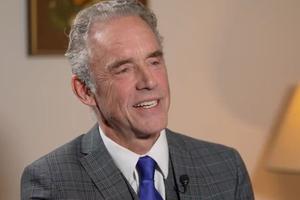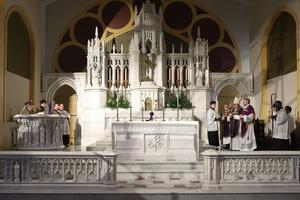Why the Easter Season Matters
We are Christians, who belong to the Risen King, and thus we know something others do not.

It is only in the light of Easter Sunday that we are free to enjoy the rest of the year. And to see death, not as an implacable enemy against whom we cannot prevail, but as an old and dear friend who, despite the frightful disguise he frequently wears, enables us finally to enter another world, a setting of unimaginable beauty and joy where, for all eternity, we are embraced by the arms of Almighty God. It is the Risen Christ whom we have to thank for this. Death is no longer a wall so high and wide nothing can get by it, but a door through which we walk hand in hand with the Lord to that truly Good Place long prepared for those who love him.
Isn’t this the best possible piece of good news there could ever be? Had Christ not shattered the wall of death by the simple expedient of bursting right through it in Easter triumph, then all life would end in despair. Followed by blank, everlasting extinction. Imagine everything and everyone annihilated by day’s end. Even birth would bring no benefit had Christ not been born among us in order to die on a Cross for our salvation.
This is why we esteem Easter so much, because without it the curse of a fallen world would never have been lifted. To be cast into a state of mortal shipwreck, followed by the silence of the grave, who could bear it? Who would ever opt for a life as vaporous as the dew, a thing so tenuous as to be blown away by the nearest wind? If we were but a field of grass, whose withering is the obvious outcome of a broken cosmos, then like good pagans perhaps we might anneal ourselves to death. But who, this side of nihilism, can live without the hope that there must be a way to surmount death?
“Birth, copulation, and death,” the poet Eliot declares. “That’s all the facts when you come to brass tacks.” And when the wretched play is done? “You wait for a knock and the turning of a lock for you to know the hangman’s waiting for you.”
Oh, yes, and there is that one final twist of the knife. Not only are we fated to die, but each of us is forced to carry his death before him every hour he’s alive. Of all the creatures condemned to die, only man knows that he must die.
But we are Christians, who belong to the Risen King, and thus we know something pagans do not, that we have been given a consolation of which paganism knows nothing. And that its most profound and certain confirmation is the Event of Easter. Here is the undeniable sign that death is not the last word. If Easter means anything — if finding an empty tomb, followed by repeated appearances of the Risen Lord to those who knew him in real time — it means the assurance that it is finally not we who must die, but death thou shalt die! All because Christ, in his resurrected flesh, took death quite simply in hand, and smashed the Old Guy forever.
We must not fudge on this point one little bit. It is not a minor detail in the drama, not a negotiable extra. It is the heart of the matter. And if it were not true then, as St. Paul tells us, in the very centerpiece of his witness, we are the most miserable of men. Because, then, to tell Death and the Devil to go back to Hell, would be a lie, an affront to the truth that we do not survive death but instead are consumed and destroyed by it.
How beautifully the poet Hopkins lays it all out in the last lines of his magnificent poem, “That Nature Is A Heraclitean Fire And On The Comfort Of The Resurrection”:
In a flash, at a trumpet crash
I am all at once what Christ is, since he was what I am and
This Jack, joke, poor potsherd, patch, matchwood, immortal diamond,
Is immortal diamond.
- Keywords:
- easter
- resurrection
- easter season

















